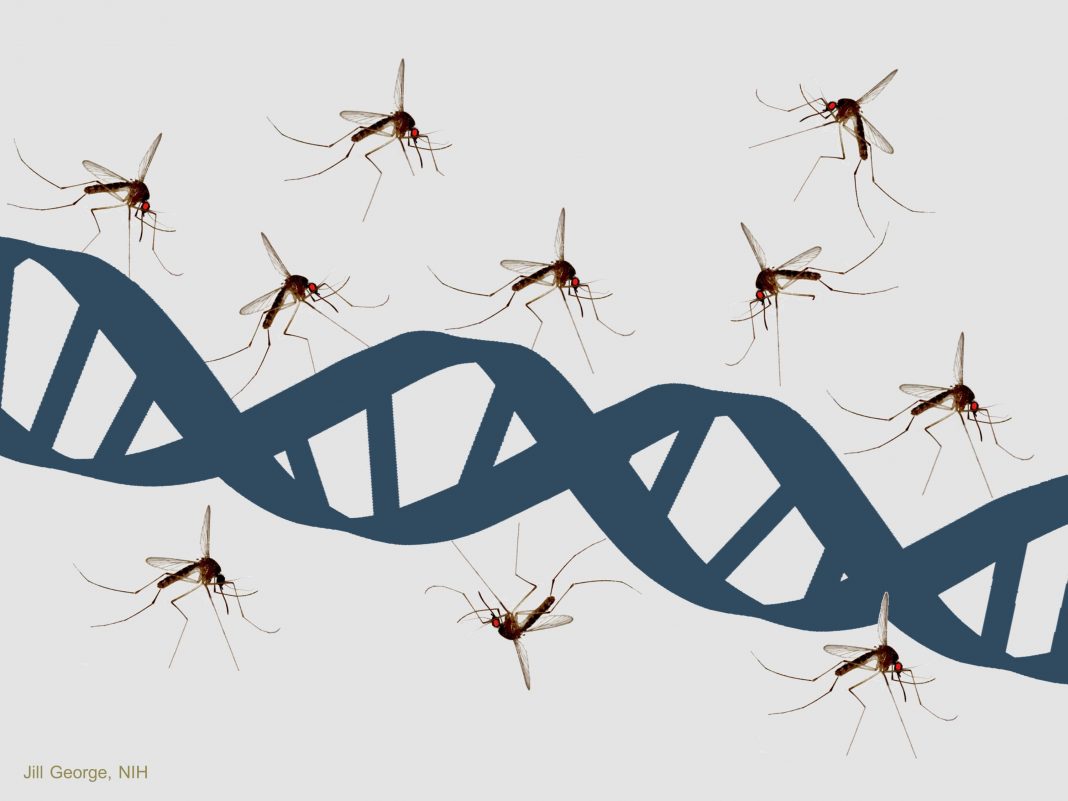A critical barrier to advancing malaria research has always been the difficulty in culturing the parasite in vitro. Thankfully, in the 1970s, researchers made some critical discoveries that allowed them to continually culture the most pathogenic strain of the malaria parasite, Plasmodium falciparum, allowing for crucial discoveries that have helped prevent millions of new infections. However, difficulties remain as scientists have been unable to culture the most widespread malaria parasite, Plasmodium vivax. Yet now, investigators from the Institute of Genome Sciences (IGS) at the University of Maryland School of Medicine (UMSOM) have developed a novel way with genome sequences to study and better understand transmission of P. vivax.
With more than eight million cases of clinical malaria being caused by P. vivax annually, it is imperative that researchers get a better handle on the molecular mechanisms that make this parasitic strain so globally pervasive. In that vein, IGS researchers teamed with researchers at the Institute Pasteur in Cambodia to analyze the parasite gene expression profiles from P. vivax malaria patients enrolled in a study to determine the effectiveness of chloroquine as a malaria treatment. Using a combination of genomic and bioinformatic approaches, they compared the parasite transcriptomes, or set of ribonucleic acid (RNA) molecules, from different patient infections and analyzed how the parasites responded to chloroquine, a common antimalarial drug.
Findings from this new study were published recently in Nature Communications through an article titled “Plasmodium vivax transcriptomes reveal stage-specific chloroquine response and differential regulation of male and female gametocytes.”
“By analyzing the parasite mRNAs directly from infected patient blood samples, we were able to observe that not all infections contained the same proportion of the male and female parasites that are required for infecting mosquitoes and propagating the disease,” explained senior study investigator David Serre, PhD, associate professor of microbiology and immunology and a member of IGS. “This observation suggests that parasite transmission is more complex than we previously thought and, perhaps, that the parasite is able to modify its development to ensure optimal survival.”
The researchers analyzed the gene expression changes induced by chloroquine treatment and demonstrated that this antimalarial drug, while efficiently eliminating P. vivax parasites, acts differently than it does on P. falciparum parasites. “This emphasizes the biological differences between these two human malaria parasites and the importance to specifically study this important pathogen if we hope to eventually eliminate malaria worldwide,” Sere noted.
“We characterized the transcriptomes of P. vivax parasites from 26 malaria patients. We show that most parasite mRNAs derive from trophozoites and that the asynchronicity of P. vivax infections is, therefore, unlikely to confound gene expression studies,” the authors added. “Analyses of gametocyte genes reveal two distinct clusters of co-regulated genes, suggesting that male and female gametocytes are independently regulated. Finally, we analyzed gene expression changes induced by chloroquine and show that this antimalarial drug efficiently eliminates most P. vivax parasite stages but, in contrast to P. falciparum, does not affect trophozoites.”
Genome sequencing studies have provided unique insights on this neglected human parasite but are limited to identifying biological differences encoded in the DNA sequence. However, gene expression studies, which could provide information on the regulation of the parasite life cycle and its response to drugs, have been challenging to implement for this pathogen due to the heterogeneous mixture of parasite stages present in every patient’s infection.
“This important research will help us better understand how to treat, prevent, and ultimately eliminate this species of malaria,” concluded E. Albert Reece, MD, PhD, dean and university executive vice president for medical affairs at UMSOM, who was not directly involved in the study. “This is particularly critical amid growing concern of drug resistance to antimalarial treatments.”


